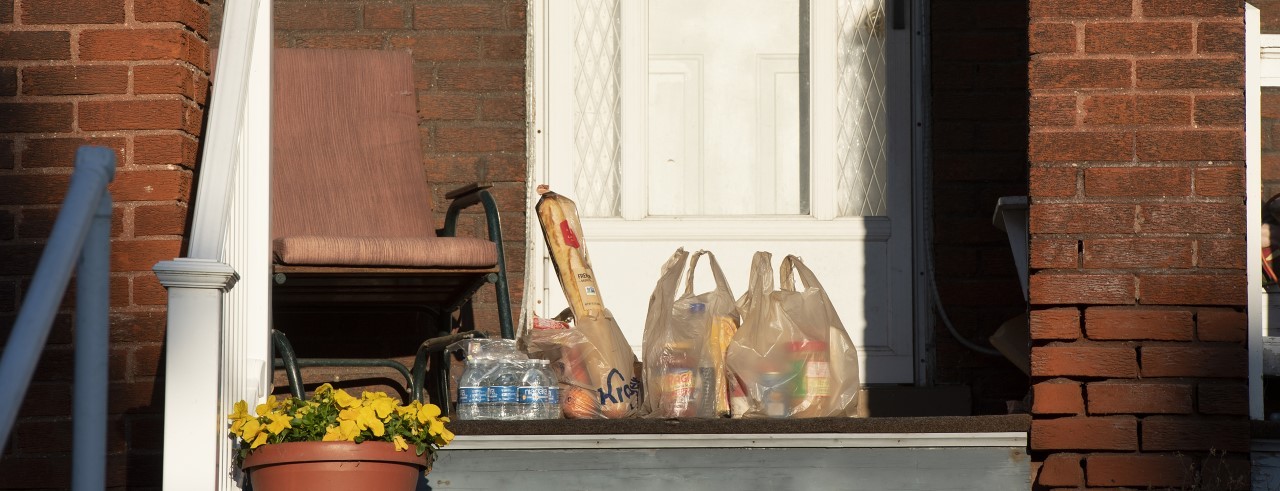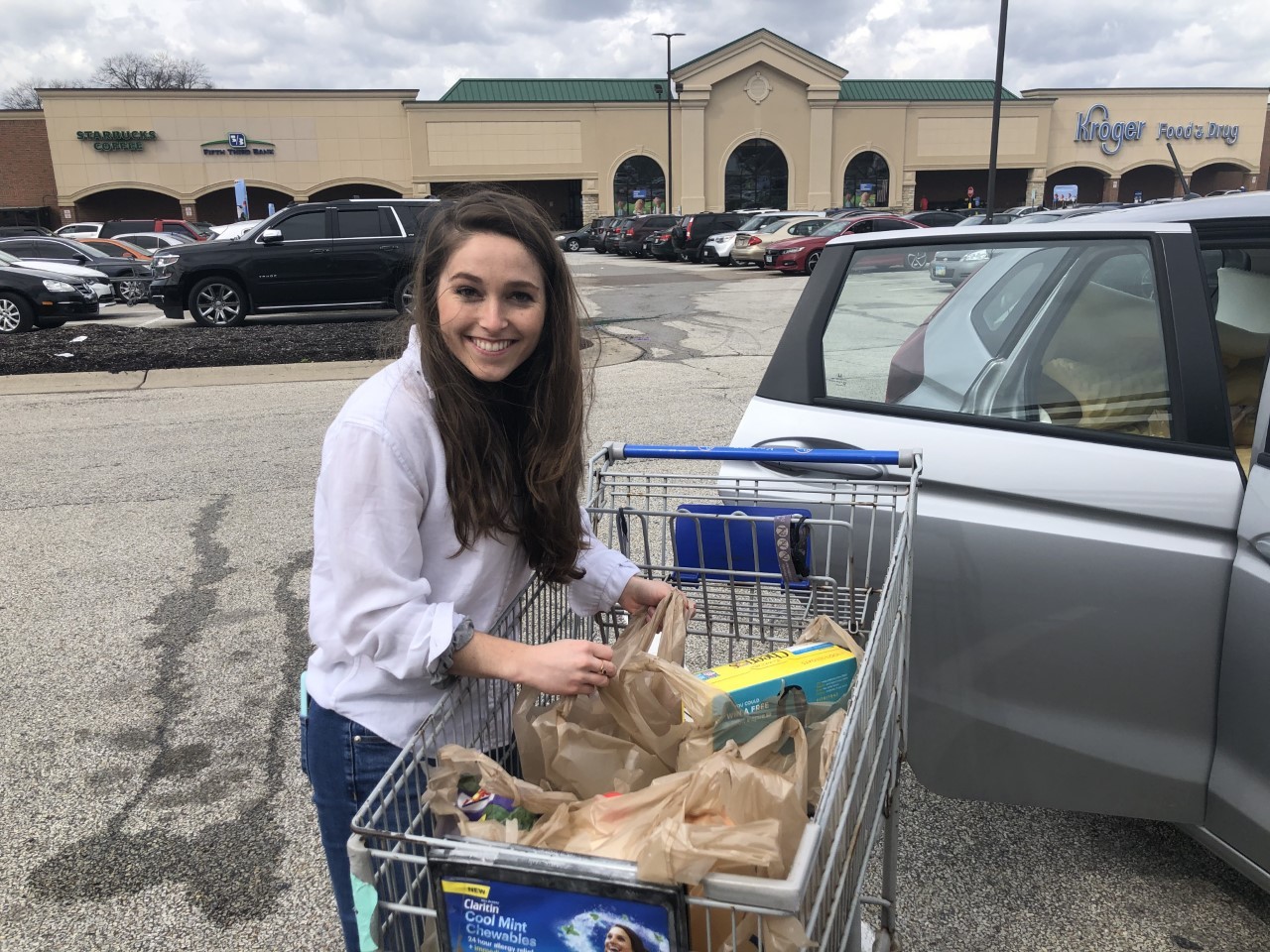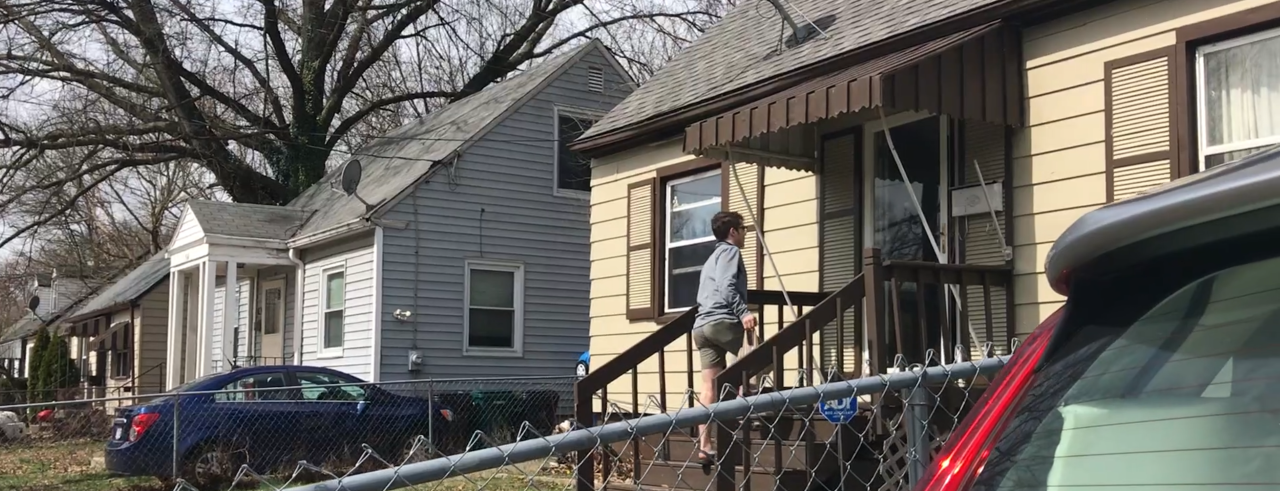
UC medical students assist seniors amidst COVID-19
New student-driven program allows volunteers to pick up groceries and prescriptions for seniors
The coronavirus pandemic has upended the daily existence for most in the Tristate including medical students at the University of Cincinnati. Most are learning remotely and many have seen their clinical rotations suspended for safety reasons.
While social distancing, hand-washing and virtual meetings remain the norm for medical students, many haven’t given up on trying to make an impact in their community.
A group of about 40 medical students are part of a free service program known as “Cincinnati + NKY COVID-19 Match” aimed at connecting younger healthy volunteers who have a lower risk for illness with individuals at severe risk of developing coronavirus and in need of someone to pick up groceries, medications or deliver meals. Individuals with asthma or with immunocompromised systems along with seniors 65 and older are considered in the high-risk category, according to the Centers for Disease Control and Prevention.
Third-year UC medical students Cassandra Schoborg and Tommy Daley spearheaded the effort. They began thinking about ways to help as federal, state and local officials announced restrictions in daily life to protect public health. Schoborg, a Covington, Kentucky, native, was already assisting her grandmother by picking up groceries and other essentials.

Cassandra Schoborg unpacks groceries. She launched a program in Cincinnati pairing healthy volunteers with seniors and others at risk during the coronavirus pandemic. Photo courtesy of Cassandra Schoborg.
“My mom was telling me how it would be really bad right now if we didn’t live in the area and couldn’t help my grandma,” says Schoborg. “There are plenty of people who are stuck in their homes or should be in their home at this time so they aren’t getting sick.”
“Normally, they are independent but all of sudden they can’t really safely leave their homes,” said Schoborg.
She discussed her worries with Daley, and the two researched other communities and found programs assisting individuals at risk of coronavirus including one in Louisville, Kentucky, which they contacted and used as a model. “We were talking to an organizer in Louisville, and she encouraged us to get a program going here as well,” said Schoborg. “Our name is modeled after their name.”
Daley says many cities around the country have programs springing up to help seniors. Some less-formalized efforts are happening with churches and other organizations. “It just seemed like Louisville was the largest,” says Daley. “I think this came out of seeing how other people are reacting to the crisis. Every city kind of saw the need and looked to their neighbors for guidance.”
Schoborg reached out to a tech-savvy friend, Claude Rogers, who helped set up a website to attract volunteers and participants for the program. She and Daley have also tried reaching out to nonprofit organizations and churches in hopes of attracting volunteers and finding seniors living independently and in need of help.
Individuals who sign up as volunteers along with seniors participating in the program receive emails offering suggestions for the type of assistance that can be provided and how to interact to insure all parties are staying within safety guidelines to prevent further spread of coronavirus.

Tommy Daley delivers groceries in a Greater Cincinnati neighborhood. Image courtesy of Tommy Daley
“We cover basic safety in our confirmation email with volunteers,” says Schoborg.
While medical students form the core of the program it also is open to community members and has attracted about three dozen volunteers not affiliated with UC.
Schoborg says she emphasizes to volunteers that they should not be involved if they feel sick, have a fever or have any symptoms or recent exposure to sick people. Volunteers are encouraged to shop and deliver groceries, pick up prescriptions, help seniors set up a Kroger Click list and to check on seniors every few days.
“Minimize contact by leaving groceries on the porch, in the garage, using cash apps such as Venmo to exchange money, etc. This is especially essential if your match has had any symptoms of illness,” the email states. “Use hand sanitizer or wash your hands before and after you make any deliveries.”
Schoborg also offers some tips for seniors participating in the program.
“When your match makes deliveries to your house, wave during your visits,” the group advises seniors. “Do not shake hands, hug or make physical contact. Please remember to maintain appropriate social distancing by keeping six feet away from each other at all times.”
For individuals wanting more information, reach out via email at cincinnatimatch@gmail.com or call 513-327-8583.
Featured image at top: Groceries left on a porch. Colleen Kelley/UC Creative + Brand
Impact Lives Here
The University of Cincinnati is leading public urban universities into a new era of innovation and impact. Our faculty, staff and students are saving lives, changing outcomes and bending the future in our city's direction. Next Lives Here.
Stay up on all UC's COVID-19 stories, read more #UCtheGood content, or take a UC virtual visit and begin picturing yourself at an institution that inspires incredible stories.
Related Stories
UC researcher develops at-home diagnostic test for endometriosis
April 21, 2025
Katherine Burns, a University of Cincinnati researcher who has endometriosis, speaks about her journey of developing a non-invasive diagnostic test for the condition.
NEXT Innovation Scholar Charlie Harker
April 21, 2025
From strategizing with community leaders on the future of transportation solutions to collaborating with global corporate partners to dive into complex consumer insights, the NEXT Innovation Scholars (NIS) program at the University of Cincinnati empowers a new generation of leaders and problem solvers.
UC student receives renowned Truman Scholarship
April 18, 2025
Harshman Sihra, a reproductive health advocate planning a future as an OBGYN and public health policymaker, is now the third University of Cincinnati student to win the Harry S. Truman Scholarship.
